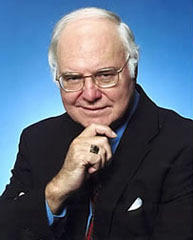William James Quotes - Page 13

Owing to the fact that all experience is a process, no point of view can ever be the last one
William James (2013). “The Meaning of Truth”, p.48, Courier Corporation
"The Principles of Psychology". Book by William James, 1890.
William James (2012). “The Principles of Psychology”, p.121, Courier Corporation
William James, John Dewey, John M. Capps, Donald Capps (2005). “James and Dewey on Belief and Experience”, p.120, University of Illinois Press
William James (2013). “The Varieties of Religious Experience”, p.27, Courier Corporation
A difference which makes no difference is no difference at all.
"William James: The Essential Writings". Book by Bruce W. Wilshire, 1971.
William James (2013). “The Varieties of Religious Experience”, p.31, Courier Corporation
Most men have a good memory for facts connected with their own pursuits.
William James (2012). “Psychology: The Briefer Course”, p.161, Courier Corporation
Habit is a second nature, or rather, it is 'ten times nature'.
"Talks to Teachers on Psychology: And to Students on Some of Life's Ideals".
William James (1987). “Writings, 1902-1910”, p.1281, Library of America
William James (2015). “The Varieties of Religious Experience”, p.497, Booklassic
William James (1987). “Essays, Comments, and Reviews”, p.4, Harvard University Press
William James (2008). “Talks to Teachers on Psychology and to Students on Some of Life's Ideals”, p.17, Cosimo, Inc.
William James (1987). “Essays, Comments, and Reviews”, p.356, Harvard University Press
Letter to Alice Gibbons James, 1878
William James (2015). “The Varieties of Religious Experience: A Study in Human Nature”, p.40, Xist Publishing
William James (2015). “The Varieties of Religious Experience”, p.158, Booklassic
'What would be better for us to believe!' This sounds very like a definition of truth
William James (1970). “Essays in Pragmatism”, p.156, Simon and Schuster
William James (2012). “The Principles of Psychology”, p.243, Courier Corporation
William James (2016). “William James: Essays and Lectures”, p.99, Routledge






